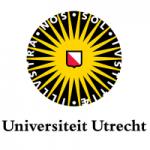Successful Host Adaptation of IncK2 Plasmids
Investigación publicada en Frontiers in Microbiology
15 de octubre de 2019
The IncK plasmid group can be divided into two separate lineages named IncK1 and IncK2. IncK2 is found predominantly in poultry while IncK1 was reported in various mammals, including animals and humans. The physiological basis of this distinction is not known. In this manuscript we examined fitness cost of IncK1 and IncK2 plasmids at 37 and 42°C, which resembles mammalian and chicken body temperatures, respectively. We analyzed conjugation frequency, plasmid copy number and plasmid fitness cost in direct competition. Additionally, we measured levels of σ-32 in Escherichia coli carrying either wild type or conjugation-deficient IncK plasmids. The results show that IncK2 plasmids have a higher conjugation frequency and lower copy number at 42°C compared to IncK1. While the overall fitness cost to the host bacterium of IncK2 plasmids was higher than that of IncK1, it was not affected by the temperature while the fitness cost of IncK1 was shown to increase at 42°C compared to 37°C. These differences correlate with an increased expression of σ-32, a regulator of heat-shock protein expression, in E. coli with IncK2 compared to cells containing IncK1. This effect was not seen in cells containing conjugation deficient plasmids. Therefore, it is hypothesized that the assembly of the functional T4S may lead to these increased levels of σ-32. Increased activation of CpxR at 42°C may explain why IncK2 plasmids, and not IncK1, are predominantly found in chicken isolates
Rozwandowicz M., Brouwer MSM., Mughini-Gras L., Wagenaar J., Gonzalez-Zorn B., Mevius DJ. y Hordijk J.
 | Department of Infectious Diseases and Immunology. Faculty of Veterinary Medicine. Utrecht University (UU). |
| Wageningen Bioveterinary Research. | |
| National Institute for Public Health and the Environment (RIVM). Ministry of Health, Welfare and Sport. Government of the Netherlands. | |
 | Institute for Risk Assessment Sciences. Utrecht University (UU). |
 | Servicio de Zoonosis de Transmisión Alimentaria y Resistencia a Antimicrobianos (ZTA). Centro de Vigilancia Sanitaria Veterinaria (VISAVET). Universidad Complutense (UCM). |
 | Departamento de Sanidad Animal. Facultad de Veterinaria. Universidad Complutense (UCM). |

